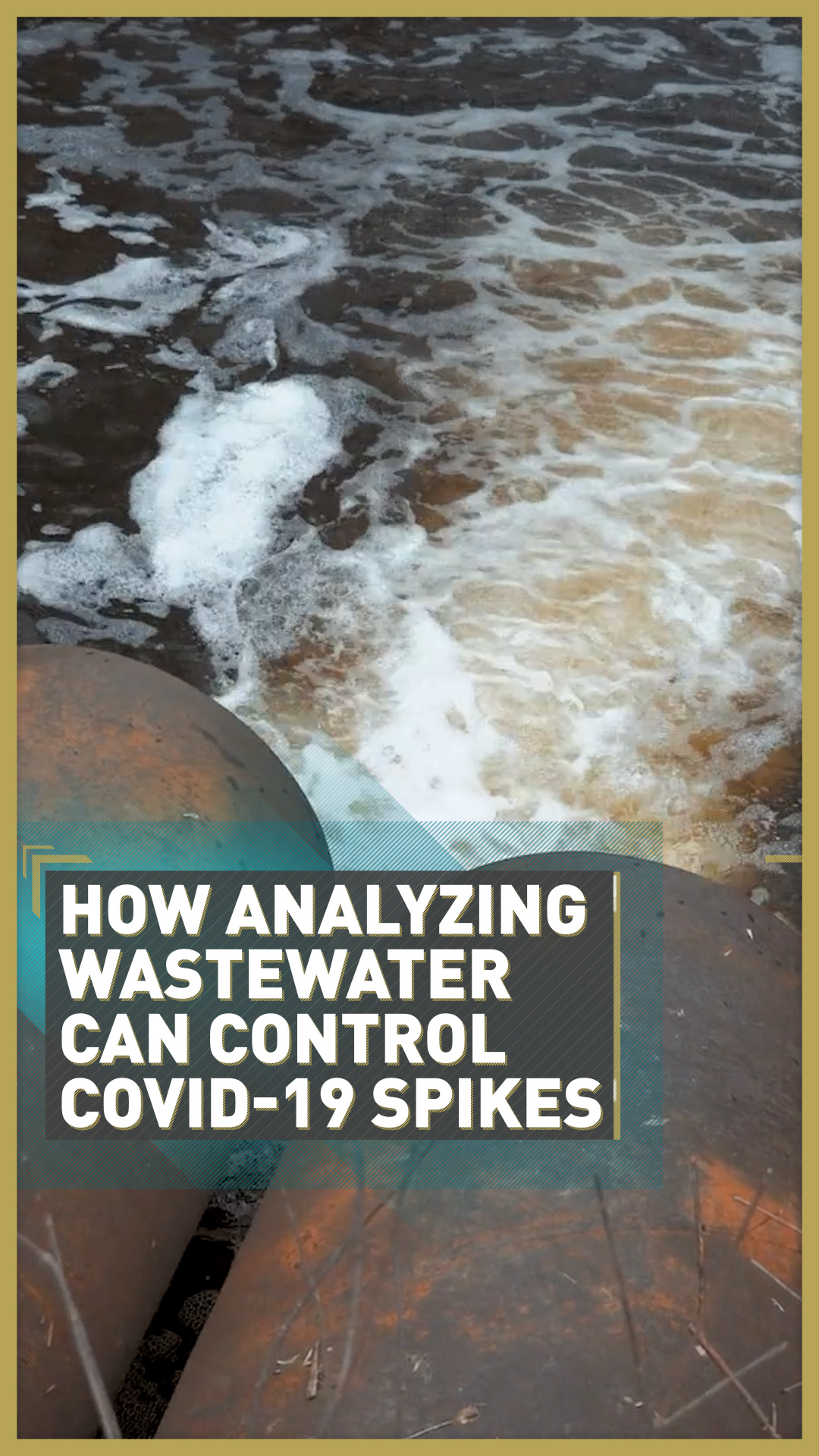02:32

From swab tests and track-and-trace apps to therapeutic drug trials and the ongoing search for a vaccine, developing ways to fight and control COVID-19 continue apace.
Analyzing wastewater may be the latest of such measures, but it is also one of the most promising. By testing sewage for traces of the coronavirus, communities have an accurate record of whether the virus is in circulation, which could help isolate localized outbreaks and prevent a second wave of infection.
"This tool doesn't replace clinical testing, but it helps to supplement clinical testing, gives us information on a community level for the entire community about what's happening in terms of trends of infection and also can be used to identify hotspots within communities," Peter Grevatt, the CEO of the Water Research Foundation, told CGTN Europe.

Testing sewage water for traces of COVID-19 could help isolate localized infections and prevent a second wave of the virus. /CGTN
Testing sewage water for traces of COVID-19 could help isolate localized infections and prevent a second wave of the virus. /CGTN
He added: "The main benefit of this tool is that it's very cost effective. It gives us a picture of an entire community as opposed to an individual test for an infected individual. And it can help us to track trends."
Speed is of the essence when containing local outbreaks, such as those emerging across meat-packing facilities, prisons and universities across Europe in recent weeks.
"We've seen to date that this tool can be used to identify as few as one to three cases per 100,000 population," said Grevatt.
"And if you imagine how many clinical tests you would have to perform to find one to three cases per 100,000 and you realize that you could do this with just a handful of tests of a central wastewater treatment plant, you start to see the power of this tool."
READ MORE: How one Spanish city is using wastewater to fight COVID-19
Leaders from the Water Research Foundation are sharing findings from a dozen countries in Europe, Asia, Australia and North America to accelerate the practice.
"In the Netherlands, a community was being tested before the infections arrived and the first signal from sewer-shed monitoring came in about six days before the first individual within that community was identified as positive for COVID-19," said Grevatt.
"It's a very powerful tool, particularly when you consider that when a community is on an exponential growth curve of increasing cases of COVID-19, every day of advanced notice translates to lives saved," said Grevatt.
Video editing: Pedro Duarte
Check out our new six-part podcast series Notes on a Pandemic as CGTN Europe finds out how business, science and people have risen to the challenge of COVID-19.